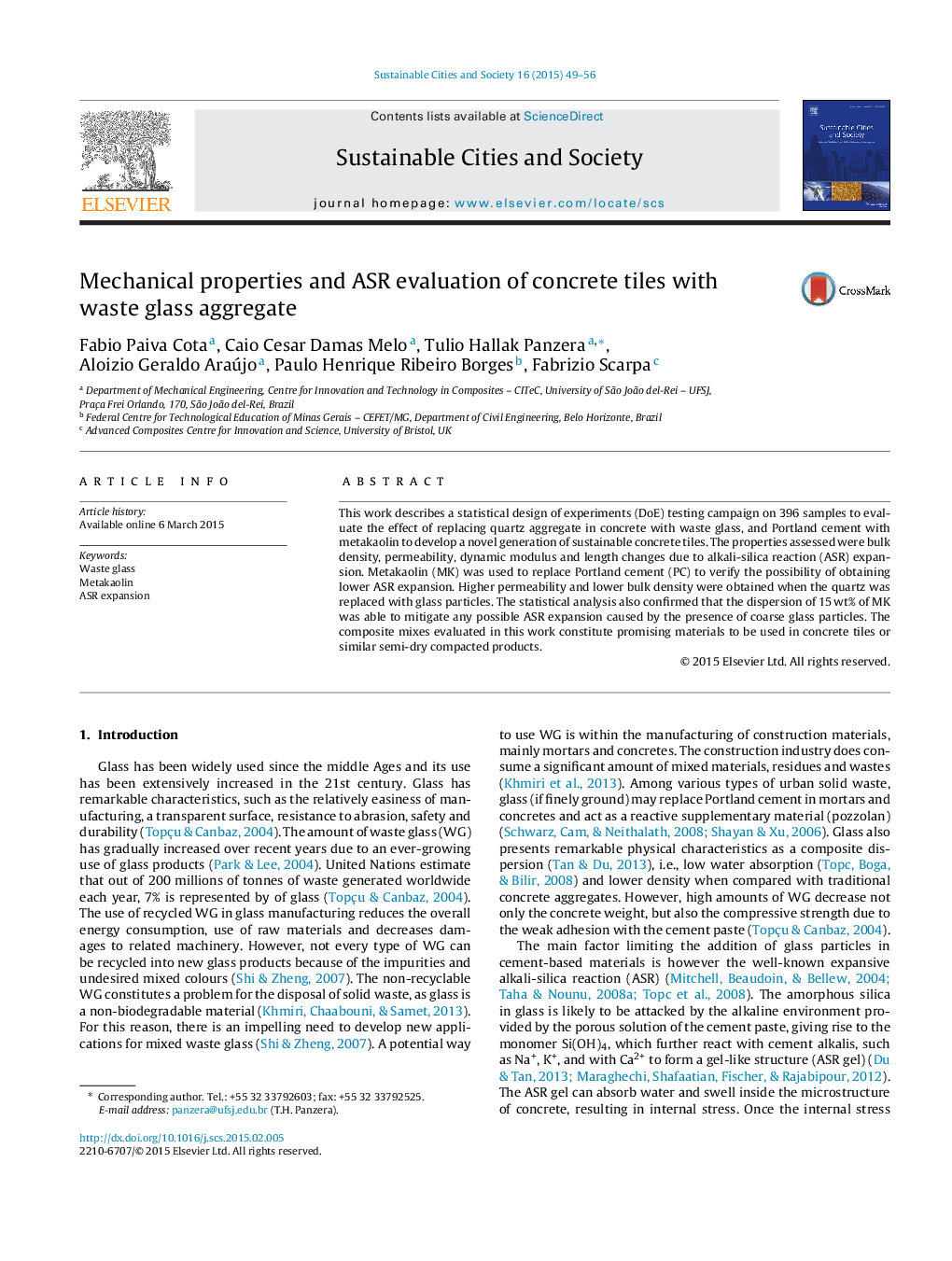| Article ID | Journal | Published Year | Pages | File Type |
|---|---|---|---|---|
| 308105 | Sustainable Cities and Society | 2015 | 8 Pages |
This work describes a statistical design of experiments (DoE) testing campaign on 396 samples to evaluate the effect of replacing quartz aggregate in concrete with waste glass, and Portland cement with metakaolin to develop a novel generation of sustainable concrete tiles. The properties assessed were bulk density, permeability, dynamic modulus and length changes due to alkali-silica reaction (ASR) expansion. Metakaolin (MK) was used to replace Portland cement (PC) to verify the possibility of obtaining lower ASR expansion. Higher permeability and lower bulk density were obtained when the quartz was replaced with glass particles. The statistical analysis also confirmed that the dispersion of 15 wt% of MK was able to mitigate any possible ASR expansion caused by the presence of coarse glass particles. The composite mixes evaluated in this work constitute promising materials to be used in concrete tiles or similar semi-dry compacted products.
